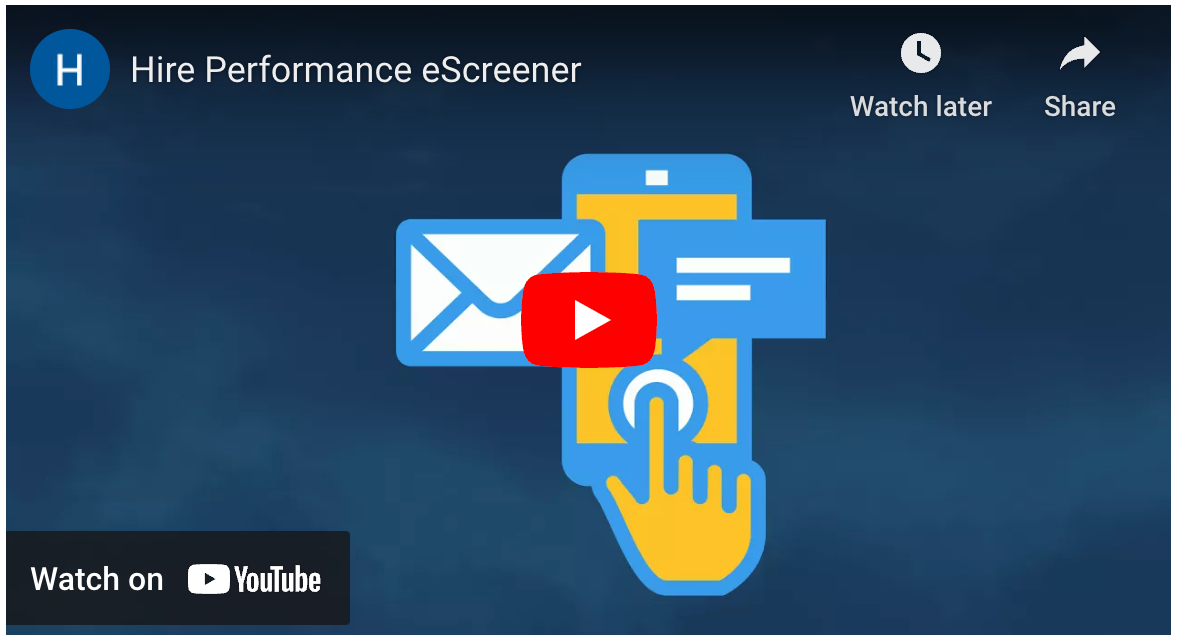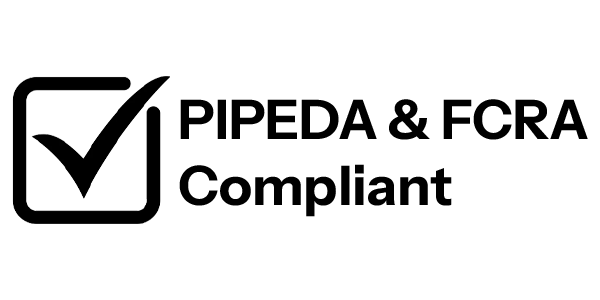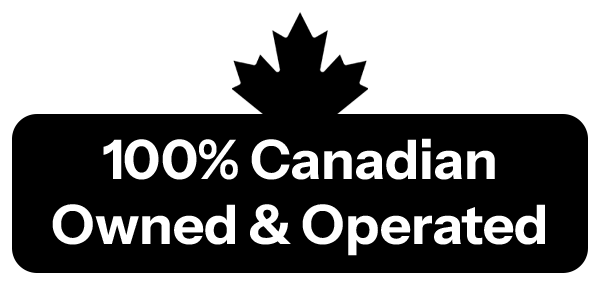Social Media Screening For Employees: Protect Your Company
Maria McParland • January 16, 2025
Did you know unvetted online behaviour could expose your business to negligent hiring claims? If an employee uses their social media accounts to post offensive comments or harmful content publicly, you may be dealing with a damaged reputation — or worse — harassment lawsuits.
Social media background checks identify these risks before they cause damage. Ethical and comprehensive screenings during hiring can protect your company’s image and reduce legal liabilities.
Keep reading to learn what social media liability means for business owners, how to screen candidates and current employees, recent examples of social media backlash, and how to ensure compliance through training and policies.
5 Key Takeaways:
- Importance of Social Media Screening: Social media background checks can help identify risky behaviours like discriminatory posts, harassment, or content misaligned with company values, reducing legal liabilities and reputational harm.
- Legal Risks from Employee Social Media Activity: Unchecked social media behaviour can lead to harassment lawsuits, negligent hiring claims, reputational damage, and even loss of business partnerships.
- Ethical and Transparent Screening Practices: Employers should focus on publicly available, job-relevant information, avoid intrusive searches, and communicate screening policies transparently to balance privacy with risk mitigation.
- Proactive Policies for Online Conduct: Implement clear social media guidelines, define consequences for violations, and encourage employees to align their behaviour with company values to reduce misconduct risks.
- Training and Awareness to Prevent Issues: Regular employee training on social media risks and real-world examples of consequences can promote responsible online behaviour and help maintain a compliant workplace.

Understanding Social Media Liability in the Workplace
Social media has blurred the line between personal and professional behaviour, creating new challenges for employers.
Legal Risks Stemming from Employee Social Media Activity
Employee social media activity can lead to lawsuits and liabilities for businesses in several ways:
- Harassment lawsuits from discriminatory or offensive posts made by employees.
- Negligent hiring claims can happen if the employer overlooks harmful online behaviour during hiring.
- Public backlash might occur if an employee’s conduct online conflicts with the company’s values or policies.
- Reputational damage can ripple beyond the initial incident, affecting investor trust, employee morale, and customer loyalty.
- Loss of partnerships may occur if business associates or clients sever ties over an employee’s inappropriate online behaviour.
- Legal risks from non-compliance can arise if social media screening or disciplinary actions don’t align with labour laws or privacy regulations.
The legal consequences of
unchecked social media activityare evident in real-world cases.
Accenture
In 2022, Accenture fired a senior employee who made defamatory social media posts about a client. The posts accused the client of unethical behaviour, went viral, and caused severe harm to the company’s relationship with the client.
The employee’s claims about the client were false, and the company faced potential legal repercussions, including defamation suits, as the public viewed the post as a reflection of the company’s values and stance despite being made by an individual employee.
Air Canada
Air Canada recently grounded a pilot for making inflammatory online comments about the Gaza conflict. The company called the posts "unacceptable" and acted quickly to protect its reputation. This case shows how social media activity, especially in public-facing roles, can cause major challenges if not managed promptly and effectively.
Google
In 2017, a Google employee published a memo online questioning the company’s diversity efforts and making controversial statements about gender differences. The memo went viral, sparking heated debates about workplace culture and free speech. Google fired the employee to protect its values, but the incident caused a divide: some accused Google of stifling free speech, while others supported the decision. This situation shows how internal disputes, when aired on social media, can quickly turn into major PR challenges.
The Role of Social Media Background Checks
Including social media screening during your background checkscan protect your company from legal and reputational risks. By evaluating candidates’ online presence, you can learn about an applicant’s behaviour, values, and past actions — information not typically found during traditional screenings. This proactive approach can help identify possible threats before they become liabilities.
What Social Media Screening Covers
Social media screeninguncovers online behaviours that can harm your company’s culture and legal standing, such as:
- Posts or comments indicating discriminatory behaviour: Social media platforms often expose biases or prejudiced opinions. A post that promotes racism, sexism, or any form of discrimination can signal to hiring managers that the candidate may act inappropriately in the workplace, creating a hostile environment.
- Evidence of harassment, hate speech, or violent rhetoric: Offensive language, threats, or hate speech can show an individual’s true character. Screening for these behaviours can eliminate applicants who could harm your workplace reputation or put your company at risk of harassment lawsuits.
- Content poorly reflecting your company’s values: Personal posts can damage your organization’s image. If a candidate’s online activity shows unprofessionalism, it could damage your client, customer, or public relationships.
Benefits of Proactive Screening
Here’s why you should be proactive with your social media screening:
- Minimize negligent hiring risks: Skipping social media checks can lead to hiring candidates with a history of problematic behaviour. Reviewing a candidate’s online activity can identify potential issues early, lowering the chance of negligent hiring claims.
- Protect your company from harassment lawsuits: By identifying offensive or harmful contentbefore you hire an employee, social media screening lowers the chances of linking your company to harassment incidents or discriminatory behaviour in the workplace.
- Maintaining a positive online reputation: Employees help shape a company’s reputation, and digital platforms can amplify positive and negative content. Screening candidates for behaviour aligning with company values helps ensure that new employees boost your brand’s online image rather than harm it.
Balancing Privacy with Risk Mitigation
While social media screening can offer critical protection from legal and reputational risks, you must balance workplace safety and respecting employee privacy. Be mindful of the ethical implications and legal boundaries of social media screening to avoid overstepping and creating potential issues related to discrimination orprivacy violations.
Conducting Ethical Screening
Use a transparent approach when performing ethical social media screenings:
- Create clear company policies outlining the purpose and scope of checks: Employers should define why social media screening and ongoing periodic rechecks of existing employees is part of their hiring process and what information they look for. A well-communicated policy tells candidates and employees what to expect and helps prevent misunderstandings.
- Focus on job-relevant information and avoid intrusive searches: Limit the screening to content related to the applicant’s suitability for the role. Employers should avoid investigating irrelevant personal details that could lead to privacy concerns. For example, searching for content unrelated to the job, such as family matters or political opinions unrelated to the position, could be considered invasive.
- Promote transparency with candidates: Inform candidates that you will review their social media during the hiring process. Transparency establishes trust and ensures that candidates understand the purpose and limits of the screening.
Protecting Employees’ Privacy
Social media screening should focus on publicly available information, such as posts visible to anyone, rather than searching for content behind privacy settings. Employers also need to be careful about their weight on social media findings in their hiring decisions so they don’t make assumptions based on irrelevant factors or protected characteristics.
Strategies to Address Employee Online Conduct
Proactive strategies can encourage positive online behaviour and reduce the risk of legal issues. Here’s how implementing a social media policy can protect your business from online misconduct:
- Set clear guidelines for appropriate online conduct: Outline unacceptable social media content, like discriminatory remarks or inflammatory posts, to guide employees on proper behaviour. This strategy helps employees understand what behaviours could lead to disciplinary action and clarifies the company’s stance on online conduct.
- Outline disciplinary actions for policy violations: Clearly define the consequences for violating your company’s social media policy. Knowing the repercussions can maintain consistency and fairness in enforcement, whether it’s a warning, suspension, or termination.
- Encourage employees to align their behaviour with your company’s values: Emphasize the importance of representing the company positively online. Asking employees to share company achievements or participate in positive discussions can help reinforce your company’s values while promoting the best online reputation.
Training and Awareness Programs
Train your employees about acceptable social media behaviour to ensure everyone is on the same page. Prevent misunderstandings or accidental misconduct by:
- Providing regular training on social media risks and responsibilities: Employees should understand the potential consequences of their actions online, personally and professionally. Employers can help staff recognize the risks of engaging in controversial topics or offensive speech online by offering responsible social media use training.
- Using real-world examples to illustrate the potential consequences: Case studies or examples of companies who faced legal challenges thanks to employee social media posts are powerful reminders of the possible consequences. Real-world examples can show employees how their online activity might impact the company, providing believable lessons they can understand.
- Promoting open communication about acceptable practices: Encouraging ongoing conversations about social media best practices helps build awareness and accountability. Employees should feel comfortable asking for clarity if they’re not sure if a post or comment crosses the line, helping maintain a positive and compliant workplace.
Stay Ahead of Liability Risks with Smart Screening Practices
Social media screening is a tool that helps businesses avoid legal and reputational risks. Using it during your hiring process helps you quickly detect harmful online behaviour, reduce liabilities, protect your reputation, and create a positive working environment.
Taking proactive steps to monitor employee online conduct can mitigate risks. To ensure thorough, compliant screening, partner with Hire Performance for customized solutions that align with your company's needs and values.
We specialize in pre-employment screening services, includingbackground checks such as criminal, credit, social media, and reference checks. OureScreener platformsimplifies the process, providing quick, secure access to screening results.
Focusing on helping organizations make informed hiring decisions, we reduce turnover, improve hiring accuracy, and eliminate risks. We serve various industries and emphasize transparency, efficiency, and data security.

Industry Leading Technology for Background Checks & Screening
eScreener uses Kount Identity Verification™ technology to verify identity with confidence. This technology cross checks applicant information against Equifax and 3rd party data sources to validate an identity and to determine whether that identity has been reported as misused or associated with potential fraudulent activity. This is done in real time by accessing millions of records, providing instant results in our eScreener.
WHY CHOOSE HIRE PERFORMANCE?
Pre-Employment Screening Benefits
Our industry leading expertise and cutting edge technology help organizations detect potential risks such as resume fraud, criminal convictions, and past terminations.












